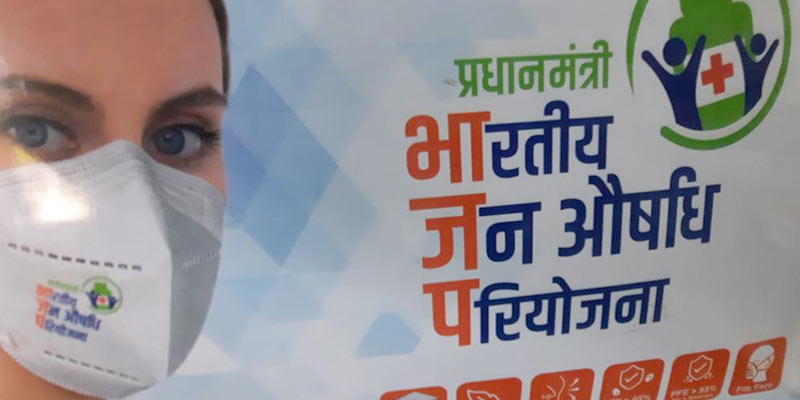- India
- Jan 02
Govt plans to open 10,000 Janaushadhi Kendras by March 2024
The government said it plans to increase the number of generic drugs stores, the Janaushadhi Kendras to 10,000 by March 2024 in order to accelerate the drive to make quality medicines available at affordable prices to all.
In 2021-22, sale of medicines worth Rs 893.56 crore has been done, which has led to savings of about Rs 5,300 crore to the citizens as compared to the branded medicines.
Since its launch, Pradhan Mantri Bhartiya Janaushadhi Pariyojana (PMBJP) has achieved the target of opening 3,000 kendras in December 2017. Further, a revised target of 6,000 outlets was also achieved in March 2020.
The number of kendras have now increased to 9,000 from 8,610 in the last financial year. Hence, the government has deepened the reach of PMBJP with more than 9,000 stores covering 743 out of 766 districts across the country.
What is PMBJP?
• Jan Aushadhi was launched by the government in 2008 for making quality medicines available at affordable prices for all. The campaign was undertaken through the sale of generic medicines through exclusive outlets namely Pradhan Mantri Janaushadhi Kendra in various districts of the country.
• It was later renamed as Pradhan Mantri Bhartiya Janaushadhi Pariyojana (PMBJP).
• It aims to bring down the health care budget of citizens by providing quality generic medicines at affordable prices.
• The scheme is being implemented through the Pharmaceuticals & Medical Devices Bureau of India (PMBI), which is working under the administrative control of the department of pharmaceuticals, ministry of chemicals & fertilisers.
Objectives of the scheme:
• To popularise generic medicines among the masses and dispel the prevalent notion that low priced generic medicines are of inferior quality or are less effective.
• To make available quality medicines consumables and surgical items at affordable prices for all and thereby reduce out of pocket expenditure of consumers/patients.
• Generate employment by engaging individual entrepreneurs in the opening of PMBJP Kendras.
Other key points:
• The product basket of the scheme now covers 1,759 medicines and 280 surgical items covering all major therapeutic groups such as cardiovascular, anti-cancers, anti-diabetics, anti-infectives, anti-allergic, gastro-intestinal medicines and nutraceuticals, among others.
• The endeavour of the government is to enhance the product basket of generic medicines and surgicals. It is a continuous process based on feedback of various stakeholders and market demands.
• Under PMBJP, an incentive of Rs 5 lakh is provided to the Janaushadhi Kendras as financial assistance.
• Also, a one-time additional incentive of Rs 2 lakh as reimbursement for IT and infra expenditure is provided to Janaushadhi Kendras opened in northeast states, Himalayan areas, island territories and backward areas mentioned as aspirational district by NITI Aayog or if opened by women entrepreneur, ex-serviceman, divyang, SC and ST.
• The medicines listed in the product list of PMBJP are procured only from World Health Organisation – Good Manufacturing Practices (WHO-GMP) certified suppliers for ensuring the quality of the products. Apart from this, each batch of the drug is tested at laboratories accredited by the ‘National Accreditation Board for Testing and Calibration Laboratories’ (NABL). Only after passing the quality tests, the medicines are dispatched to PMBJP Kendras.
• A medicine under PMBJP is priced on the principle of a maximum of 50 per cent of the average price of the top three branded medicines. Therefore, the price of Janaushadhi medicines is cheaper at least by 50 per cent and in some cases, by 80 per cent to 90 per cent of the market price of branded medicines.
• A mobile application ‘Janaushadhi Sugam’ has also been launched with user-friendly options like — locate nearby PMBJK (direction guided through Google Maps), search Janaushadhi medicines, etc.
Manorama Yearbook app is now available on Google Play Store and iOS App Store


